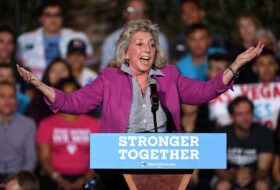
After a last-minute veto, Virginia Gov. Glenn Youngkin proposed significant changes to skill games legislation, angering the machines’ proponents. The changes would categorize skill game machines closer to casino-style games, impose restrictions on their numbers and locations, and call for a higher tax rate.
While many expected Youngkin’s veto, few anticipated a 75-page bill. While opponents praised the governor, skill game backers, including lawmakers and small business organizations, called his actions “devastating” and a “slap in the face.”
What Does the Governor Propose?
Youngkin spokesperson Christian Martinez told the Virginia Mercury the governor is thankful to Virginia’s General Assembly for their extensive work on skill games.
However, Martinez added that changes were needed.
His proposed amendments represent necessary changes and the added protections to the legislation address his serious concern with the regulatory structure, tax rates, the number of machines, impact on the Virginia Lottery and broader public safety implications of the proposal.
Youngin’s amendments would hold skill game machines to standards close to casinos. Key points of the governor’s proposal include:
- Machines cannot be within 35 miles of casinos, horse tracks, or historical horse racing parlors.
- Increase the tax rate to 35% from 25%.
- Only establishments with lottery sales can host the machines, removing ABC-licensed businesses like bars and restaurants from eligibility. Each location can have up to three machines, down from four.
- Truck stops can have seven machines, down from 10.
- Localities can ban the machines by referendum or local ordinance.
- Maximum cap of 20,000 machines statewide.
- Criminal background checks for people related to the industry will be more expansive
Youngkin’s proposal also delays the reactivation of skill game machines. The terminals were in place until last October, when the Virginia Supreme Court deemed them illegal and enforced a 2020 ban.
Additionally, the amendments call for the Virginia Lottery (VL), which regulates casinos, to hold regulatory powers. Initially, the bill placed the Virginia Alcohol Beverage Control (ABC) in charge temporarily before the VL would take over.
However, the lottery will start taking license applications on Jan. 1, 2025. However, it won’t be able to grant licenses until it establishes a “real-time central accounting system.” It will also implement age verification measures to prevent underage and problem gambling.
Changes a ‘Slap in the Face’
Sen. Aaron Rouse, one of the House sponsors of the skill game bill passed in the Assembly, said the governor’s actions are “a slap in the face to thousands of Virginia small businesses.”
Rouse said that he expected changes but not an entirely new bill. He added that his bill took 60 days to create while the governor rewrote the bill on the fly over five hours.
In a press release, Rouse said:
My co-sponsors, our bipartisan coalition, and I will work together to make sure the harmful provisions put into place by Governor Youngkin do not advance, and we will do everything possible to make the interests of small businesses – not casinos or massive out-of-state corporations – a priority.
Small businesses have been among the strongest advocates of skill game terminals. They claim the machines help them earn extra money, something considered essential since the COVID-19 pandemic.
Before his veto, they had called for the governor to act on his campaign promises and support the bill’s passage. However, Youngkin’s veto is the opposite of that.
The Virginia Merchants and Amusements Coalition (VMAC), a small business group advocating for skill games, called the changes “devastating.” President Rich Kelly said the governor banned skill game machines to protect out-of-state gambling interests.
Meanwhile, Kunal Kumar, vice president of the Virginia Asian American Store Owners Association (VAASOA), told the Washington Post the changes would ban 90% of small business owners from operating the machines. He added that the governor’s actions go against the free market principles he usually supports.
What’s Next?
The Virginia General Assembly will consider Gov. Youngkin’s changes when reconvening on April 17.
The Assembly will need a two-thirds majority to override the veto. However, that could be tricky given the division of the House and Senate. Even if legislators override the veto, Youngkin will still have the last word, as he can sign or veto the bill returned to him.
In the meantime, until a bill passes, skill game machines remain illegal under October’s Virginia Supreme Court ruling.





